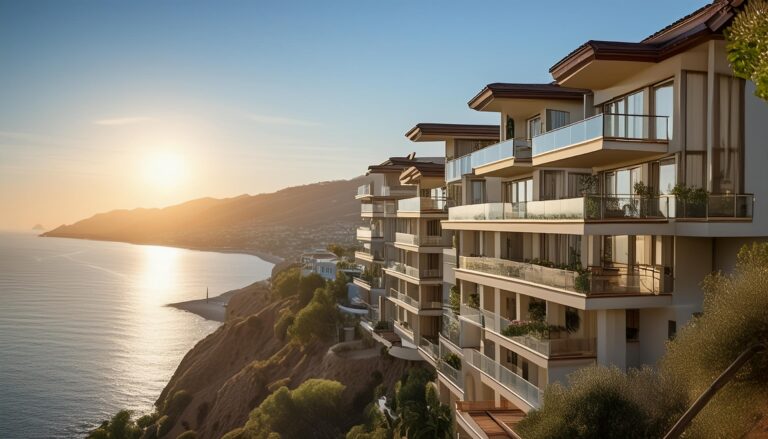SB 721: Not Every Balcony in California Needs Inspection

Table of Contents
Let’s be real, California property owners: the alphabet soup of building codes and regulations can make your head spin. SB 326, SB 721… it’s enough to make you want to retreat to your balcony for a stiff drink (assuming it’s structurally sound, of course!).
Today, we’re zooming in on SB 721, the balcony inspection law that’s been shaking things up since 2018. But before you panic and start scheduling inspections for every elevated surface you own, let’s clarify which properties actually fall under this law.
SB 721: Multi-Family Dwellings
The core focus of SB 721 is on multi-family residential buildings. Think apartment complexes, condos, townhouses – basically, any structure with three or more units that share common areas and amenities.
- Key Trigger: 3+ Units
- Property Type: Residential buildings with multiple units under the same ownership or management
Exterior Elevated Elements (EEEs): The Inspection Targets
SB 721 doesn’t just cover balconies, it’s about any “exterior elevated element” that’s:
- Associated with the building
- At least 6 feet above ground level
- Supports walking loads (meaning, people are meant to be on it)
This includes:
- Balconies (obviously!)
- Decks
- Walkways & elevated patios
- Stairways & landings
- Guardrails & handrails
When SB 721 Doesn’t Apply
Not every property in California needs an SB 721 inspection. Here are some common exclusions:
- Single-Family Homes: If you own a detached house, even with a multi-level deck, you’re generally exempt from SB 721. However, local building codes may still require inspections in some cases.
- Duplexes: Two-unit buildings are typically not covered by SB 721, unless they’re part of a larger complex with shared amenities.
- Commercial Buildings: SB 721 is focused on residential properties. Commercial buildings have their own set of regulations.
When in Doubt, Consult an Expert
Some situations might be less clear-cut:
- Mixed-Use Buildings: If your building has both residential and commercial units, it might partially fall under SB 721.
- Converted Buildings: Historic buildings that have been converted to multi-family use might have unique considerations.
In these cases, it’s always best to consult with a qualified professional like Dr. Balcony. We’ll assess your specific property and provide clear guidance on compliance requirements.
Contact DrBalcony for a professional inspection!
Ensure the safety of your balcony and living space with DrBalcony - We're a Tech Engineering firm that specializes in California SB326 & SB721 balcony inspections. Over 300+ completed projects in California.
Request A Free EstimateClick To CallIgnoring SB 721 isn’t an option. Non-compliance can lead to:
- Hefty fines: Up to $500 per day, per violation
- Legal liability: If someone gets hurt due to a neglected balcony, you could be sued
- Difficulty selling or refinancing: Lenders are increasingly scrutinizing inspection reports.
Need Help Determining if SB 721 Applies to Your Property?
DrBalcony specializes in navigating California’s complex balcony laws. Contact us today for a free consultation, and we’ll assess your property’s needs and ensure you’re on the path to compliance.
Contact DrBalcony for a professional inspection!
Ensure the safety of your balcony and living space with DrBalcony - We're a Tech Engineering firm that specializes in California SB326 & SB721 balcony inspections. Over 300+ completed projects in California.
Request A Free EstimateClick To CallFAQ Section: Top Questions & Answers
My property is well-maintained. Do I really need SB-326/SB-721 inspections?
YES! Even with excellent maintenance, hidden issues can develop due to construction errors, material flaws, or severe weather exposure. Inspections are about ensuring those don’t turn into major problems.
Our balconies were inspected a few years ago – isn't that enough?
Unfortunately, no. California laws mandate inspections on a set schedule, often every 6 years. Deterioration can happen quickly, making regular assessments essential.
Can I use my regular handyman for the balcony inspection?
It’s not recommended. Unless they hold specific licenses (architect, structural engineer, etc.) their inspection won’t be considered valid for SB-326/SB-721 compliance.
What if the inspection uncovers major issues?
First, don’t panic! Early detection often means less extensive (and expensive) repairs are needed. Work with your inspector to prioritize fixes, and explore if they offer repair services for a streamlined solution.
I'm worried about the cost of inspections. Are there any resources to help?
Start by getting detailed quotes from multiple companies. Factor in that proactive inspections help you avoid even bigger costs down the line due to neglected problems. Some property management associations offer guidance on budgeting for balcony compliance.
- List Item #1
- List Item #1
- List Item #1
- List Item #1
- List Item #1
I started off by doing 1 inspection with them back in June because I knew it needed work done. Now, they’ve completed 2 of my properties and have 2 more inspections coming up this month. All great so far! They’re great at keeping me updated
- List Item #1
- List Item #1
- List Item #1
- List Item #1
- List Item #1
I would like to share the fact that this company has been extremely honest and helpful with this challenging project. Balcony and walk way repairs are very expensive, so you want the very best professionals next to you
- List Item #1
- List Item #1
- List Item #1
- List Item #1
- List Item #1
Greg was very helpful in explaining the entire process. They walked me through everything and helped me keep both of my properties in compliance!

